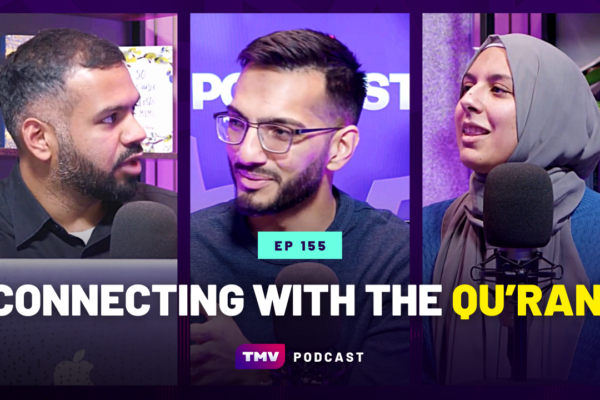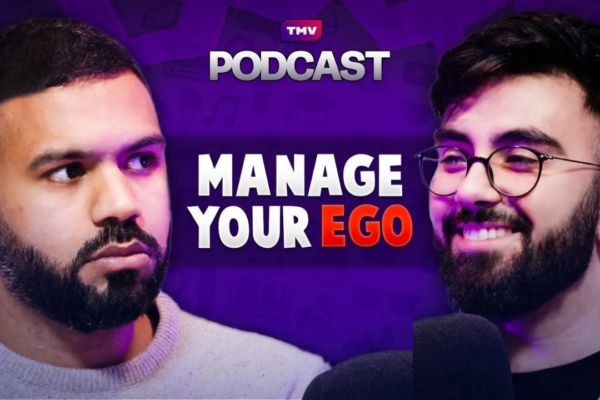On this week’s TMV podcast, Chief Editor Salim Kassim and Husam Al-Deen sat down with Aatif Nawaz and Ali Official, the two lead writers and stars of the BBC’s new comedy series Muzlamic, to talk about Muslim representation, their long journey from rejection to the big screen, and why we need to collectively help support the creative arts.
Listen to the podcast here:
The name for the TV show Muzlamic was inspired by the word created during a racist protest by an EDL supporter a few years back, when he attempted to say “Islamic” but instead came out with the word “Muslamic”. Many Muslims, including Aatif and Ali, found this funny and began using this word in jest to describe their lives in the West. They therefore thought this would be the perfect word to describe their TV show, as a show that had Muslim-inspired aspects but was really for a much wider audience.
Aatif and Ali describe how the very idea of a TV show called Muzlamic came about: from a long car ride they both shared while driving to a gig. Aatif had a background in stand-up comedy, while Ali had an online social media presence from his own comedy sketches. Coming together, with the shared dream of making it to TV, came about naturally they both explain. “It was like, hey can we help each other out?” they joke, going on to explain that although the idea of Muzlamic was born more than 2 years ago, it took a lot of hard work and effort to finally make this a reality.
This is a very interesting time to be a Muslim creative…sometimes us just existing is controversial.”
While they both don’t shy away from discussing what it’s like being Muslim or the different aspects of Islam in their lives, Aatif and Ali explain that the point of their show Muzlamic is that yes, they are Muslim, but that they are also many different things as well. Being able to portray characters that happen to be Muslim, but are also funny or strange or have a memorable personality is what Aatif and Ali work so hard to bring to the big screen. Having written the script themselves, and with the power that comes with portraying these characters now on screen, Aatif and Ali are true examples of how important it is to have Muslim representation both on and off-screen if we want to tell our own stories.
Although they’ve made to to the BBC, Aatif and Ali openly laugh and talk about their long road to success, which included many years and letters of rejections. Rejection was a large part of the path they took to get to where they are, and they claim that it is a normal and necessary part of the process. Putting in the hard work, which included countless hours at a cafe and constant editing of the script, just meant that they became closer as a team and even more determined to put their dream into reality.
This creative journey is meant to be hard…and rejection is just part of the process, you have to internalize that as part of your trajectory. All you need is that one yes.”
Collectively supporting the creative arts within the Muslim and ethnic-minority communities remain one the most important tasks of our generation, according to the duo. Aatif and Ali both understand the struggle of many second or third generation Muslims who want to find a job they feel is ‘acceptable’ to society or family, even if that means giving up on their dreams or their passions in the creative field. However they stress the importance in not giving up your dream, even if that means working extra hours or making more time in the day to balance both a day job as well as a creative dream.
You owe it to yourself to chase your dream…the secret is simply to be persistent with the hard work. I thank my Creator a million times for putting me on this platform.”
From writing the scripts up in a cafe together to getting numerous rejections, from going straight to the distribution channels with requests for meetings to finally getting a call back from the BBC, Aatif and Ali have been on a long but truly inspiring journey. Being able to balance and celebrate their dynamic identities is exactly what we need in a world growing with Islamophobia and open racism, and Aatif and Ali seem to be breaking down barriers one laugh at a time.
Be sure to listen to the full podcast here!





